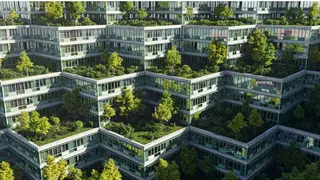Eleven of the 12 most polluted cities in the world on the World Health Organization list of 2018 are in India. This is borne out by an air pollution emergency being called out every summer and winter in many cities, with Delhi being one of the worst. To combat this, in January last year, the country rolled out its National Clean Air Programme (NCAP) through which actions will be taken to prevent, reduce and control air pollution and improve air quality in the entire country.
The promise is to reduce fine particulate (PM2.5) and particulate (PM10) air pollution by 20 per cent to 30 per cent by 2024.
As a significant step, in June, India joined the global Climate and Clean Air Coalition (CCAC), becoming the 65th country to join the partnership. Through this, the country hopes to gain in solutions and technologies to combat air pollution and learn from best practices followed in other nations and also share with them what is being innovated in the country.
An integrated approach is required to reduce air pollution, hence the country’s effort at encouraging clean energy and reducing vehicular emissions — the latter is being achieved by raising vehicle standards to BS VI and giving a push to an electric vehicle ecosystem.
However, clearly, these measures may not be enough. In March last year, an independent study by the International Institute for Applied Systems Analysis (IIASA) in Austria and the Council on Energy, Environment and Water (CEEW) in New Delhi cautioned that over 674 million Indian citizens are likely to breathe air with high concentrations of PM2.5 in 2030 even if India were to comply with its existing pollution control policies and regulations.
Legal mandate
The researchers said, “a significant share of emissions still originates from sources associated with poverty and under-development, such as solid fuel use in households and waste management practices”. Their suggestion is that NCAP be backed by a legal mandate for ground-level implementation of emission control measures and also that, in the long term, the programme be “scaled up significantly”.








Comments
Comments have to be in English, and in full sentences. They cannot be abusive or personal. Please abide by our community guidelines for posting your comments.
We have migrated to a new commenting platform. If you are already a registered user of TheHindu Businessline and logged in, you may continue to engage with our articles. If you do not have an account please register and login to post comments. Users can access their older comments by logging into their accounts on Vuukle.